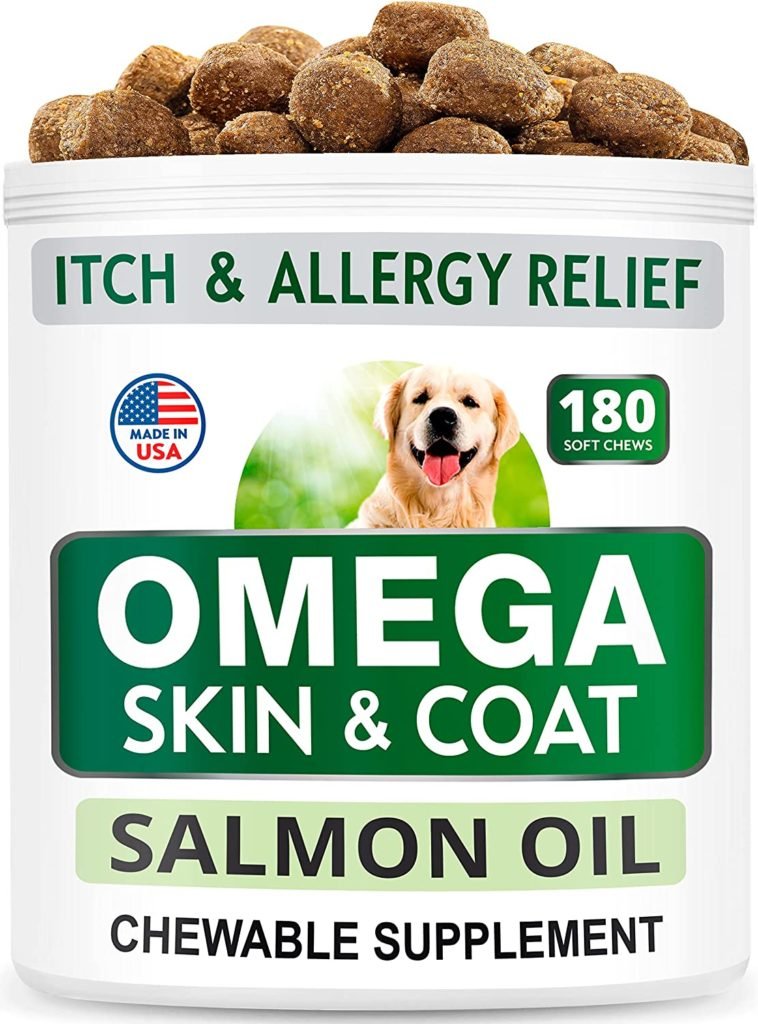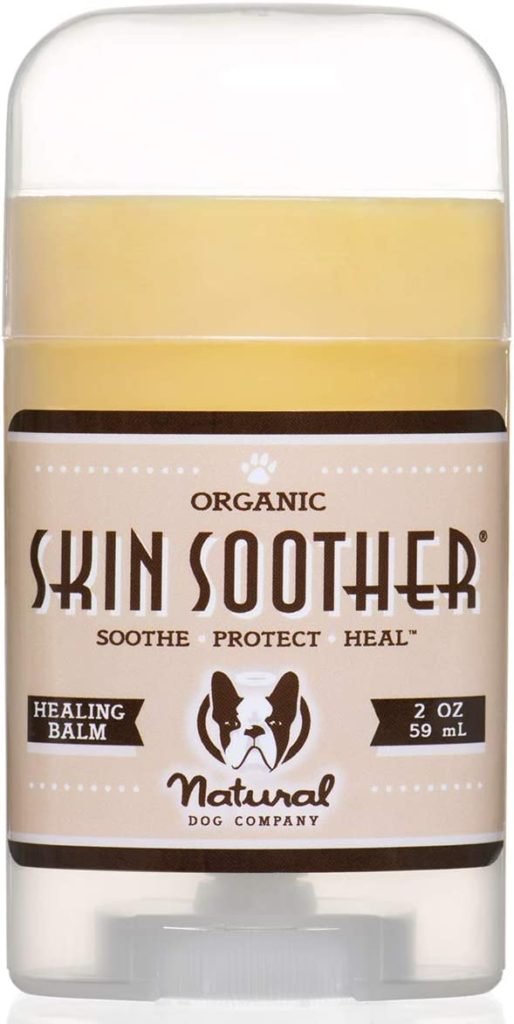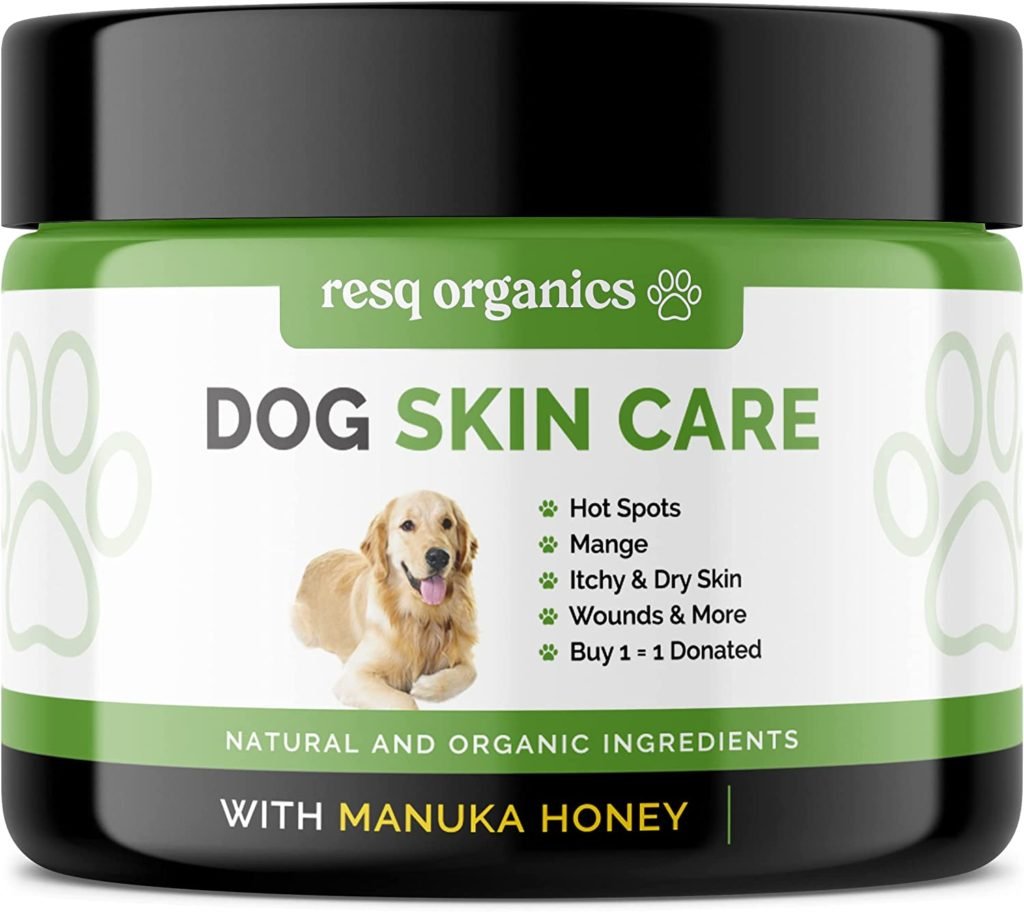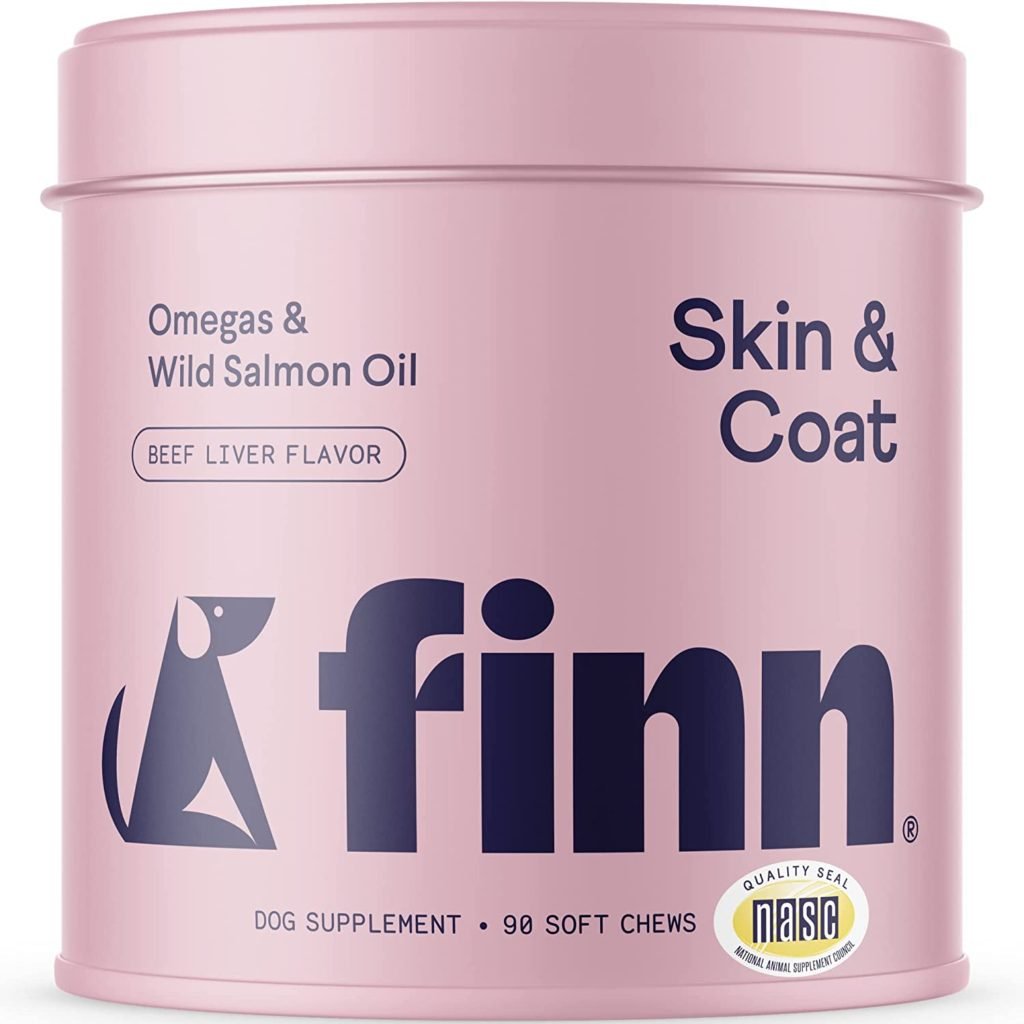Dogs irritated skin, also known as dermatitis, is a general term used to describe inflammation or irritation of the skin. Various factors, including allergies, infections, external parasites, and stress or anxiety, can cause it. In dogs, irritated skin can range in severity and may require treatment from a veterinarian.
Symptoms of irritated skin in dogs
If your dog is experiencing irritated skin, you may notice some of the following symptoms:
- Redness or swelling: The affected area may look red, inflamed, or swollen.
- Itching or scratching: Your dog may constantly scratch or bite the affected area, leading to further irritation and even open sores.
- Dry or flaky skin: The skin may appear dry and brittle or excessively oily.
- Hot spots or sores: In severe cases, irritated skin can lead to hot spots or sores, which are areas of raw, red, and inflamed skin.
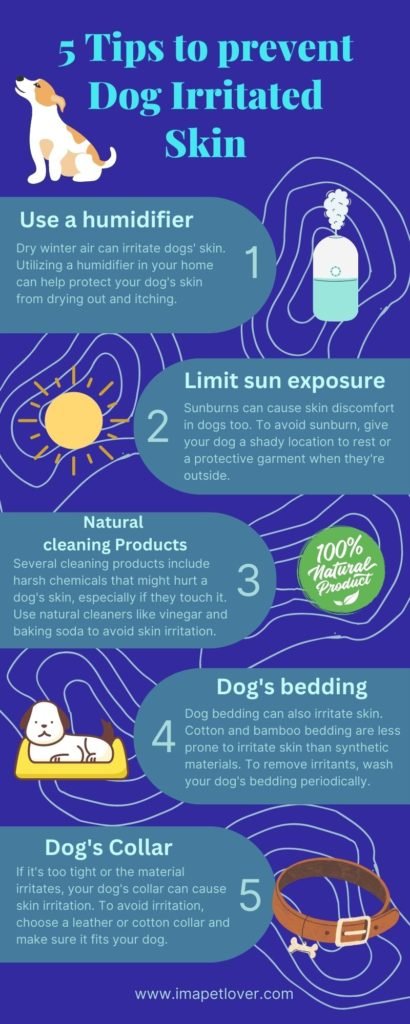
Common causes of dogs irritated skin
There are many potential causes of irritated skin in dogs. Some common ones include:
- Allergies: Allergies to certain foods, environmental triggers, or chemicals can cause skin irritation in dogs.
- Dry skin or lack of moisture: Dry skin or a lack of moisture can lead to irritation and flakiness.
- Bacterial or fungal infections: Bacterial or fungal infections can cause the skin to be inflamed and irritated.
- External parasites: Fleas, ticks, and mites can cause skin irritation and inflammation.
- Stress or anxiety: Stress or strain can lead to various skin problems, including irritated skin.
You May Also Interest: The Benefits of Stripping on dogs: Why it’s Worth the Time and Effort
Rash on dog's belly and mouth
Several uncommon causes of a rash on a dog’s belly and mouth may be worth considering if other potential causes have been ruled out. Some unique causes of a rash on a dog’s stomach include:
- Hormonal imbalances: Hormonal imbalances, such as hypothyroidism or Cushing’s disease, can cause a rash on a dog’s belly, as well as other symptoms such as hair loss, weight gain, and lethargy.
- Autoimmune disorders: Autoimmune disorders, such as lupus or pemphigus, can cause a rash on a dog’s belly, as well as other symptoms such as hair loss, skin lesions, and organ damage.
- Cancer: Cancer, such as lymphoma or skin tumors, can cause a rash on a dog’s belly, as well as other symptoms such as swelling, weight loss, and lethargy.
- Medications: Some medications, such as antibiotics or nonsteroidal anti-inflammatory drugs (NSAIDs), can cause a rash on a dog’s belly as a side effect.
Suppose you notice a rash on your dog’s belly that does not improve or resolve. In that case, it is essential to consult a veterinarian for further evaluation and treatment. They will be able to diagnose the cause of the rash and recommend the appropriate treatment.
Suggested Products
How to prevent irritated skin in dogs
There are several steps you can take to prevent irritated skin in your dog:
- Use hypoallergenic products: If your dog is allergic or sensitive, use hypoallergenic shampoos and grooming products.
- Regularly groom and brush your dog’s coat: Regular grooming and brushing can help remove tangles, mats, and loose hair, stimulate the skin and promote healthy circulation.
- Keep your dog’s environment clean and free of irritants: Keep your dog’s bedding, toys, and living area clean and free of any potential irritants.
- Provide a balanced diet with essential fatty acids: A balanced diet that includes essential fatty acids can help maintain healthy skin and coat.
- Keep your dog’s stress levels in check: Reducing stress and anxiety can help prevent various skin problems, including irritated skin.
How to treat dogs irritated skin
If your dog is experiencing irritated skin, it is essential to consult a veterinarian for proper diagnosis and treatment. They may prescribe medications or creams to help reduce inflammation and alleviate symptoms. In addition, you can implement a healthy skin care routine at home, such as:
- Using prescribed medications or creams as directed: Follow your veterinarian’s instructions for administering any prescribed medications or creams.
- Please avoid scratching or biting at the affected areas: It is vital to prevent your dog from scratching or biting at the affected areas, as this can worsen the irritation and lead to infection.
- Implement a healthy skincare routine: This may include using a hypoallergenic shampoo, applying a moisturizing coat conditioner, and regular grooming and brushing your dog’s coat.
You May Also Interest: Don’t Let Fleas Ruin Your Dog’s Health: Here’s How to Prevent and Treat Them
Irritated skin in dogs can be caused by various factors and can range in severity. It is essential to take preventive measures, such as using hypoallergenic products and maintaining a healthy skincare routine, to help prevent irritation. If your dog is experiencing irritated skin, it is essential to consult a veterinarian for proper diagnosis and treatment. You can help maintain your dog’s overall health and comfort by addressing the issue and implementing a healthy skincare routine.


